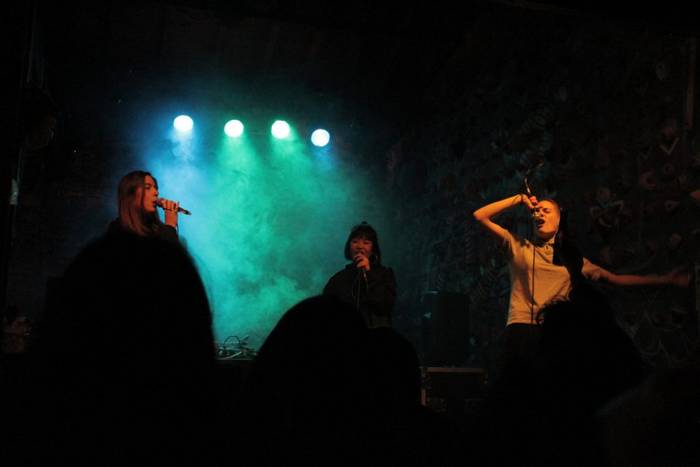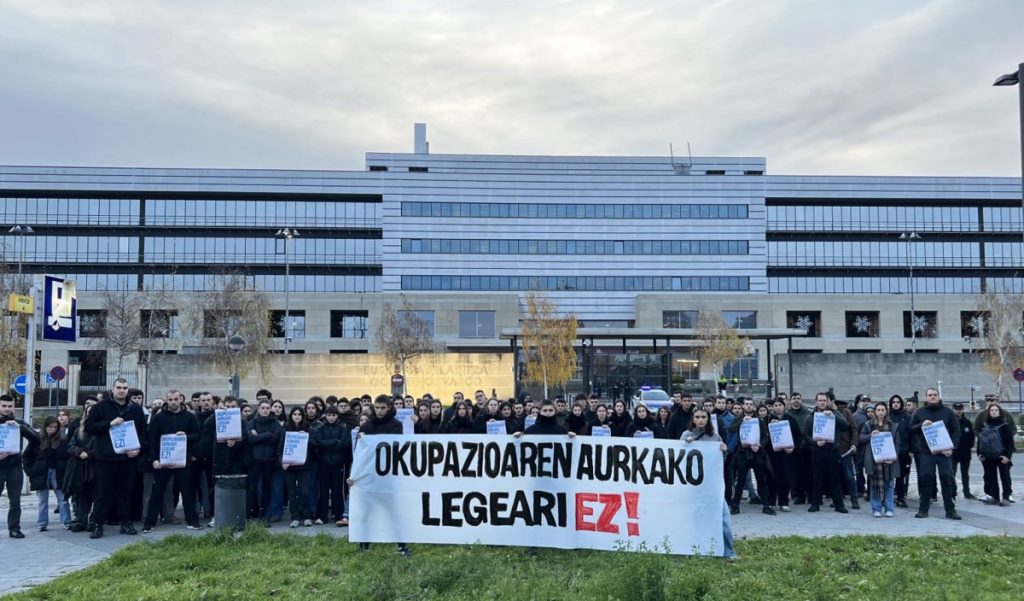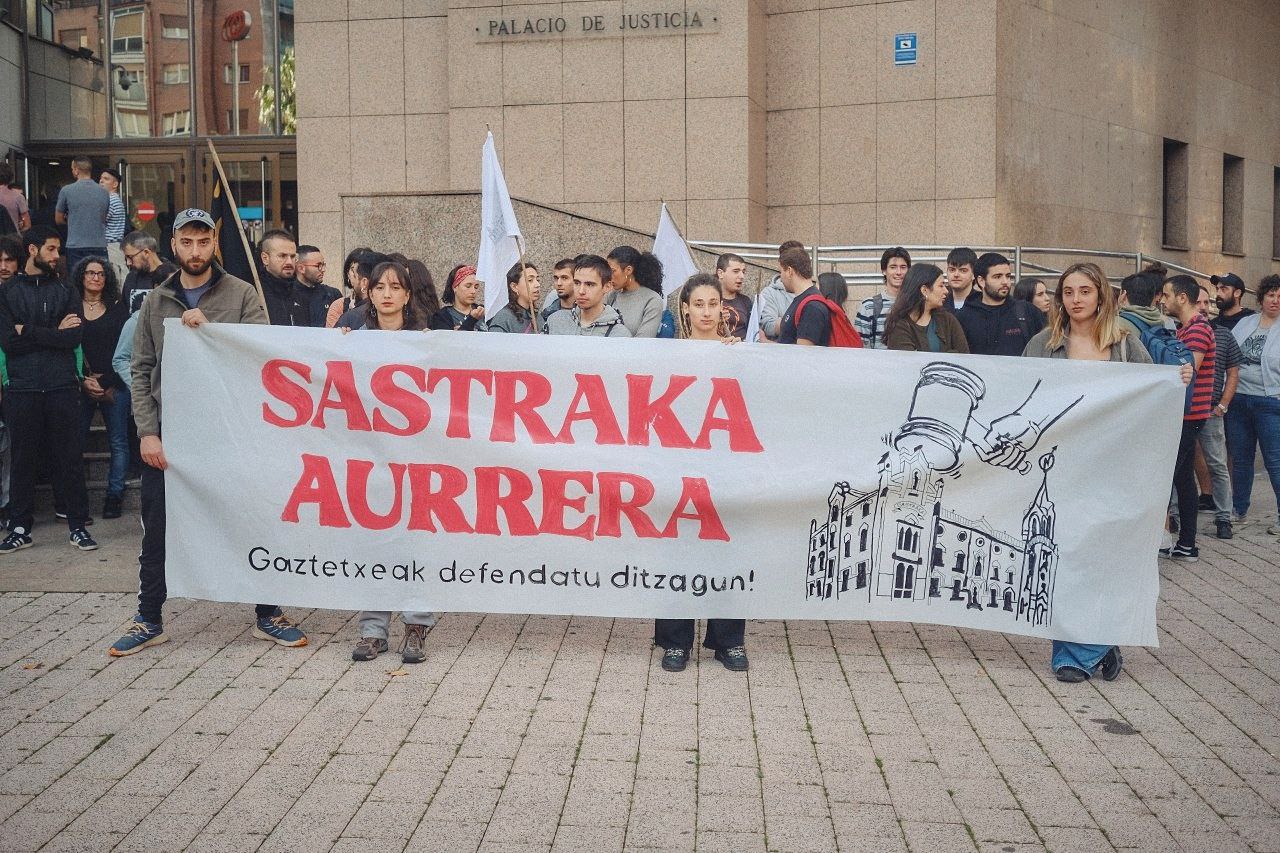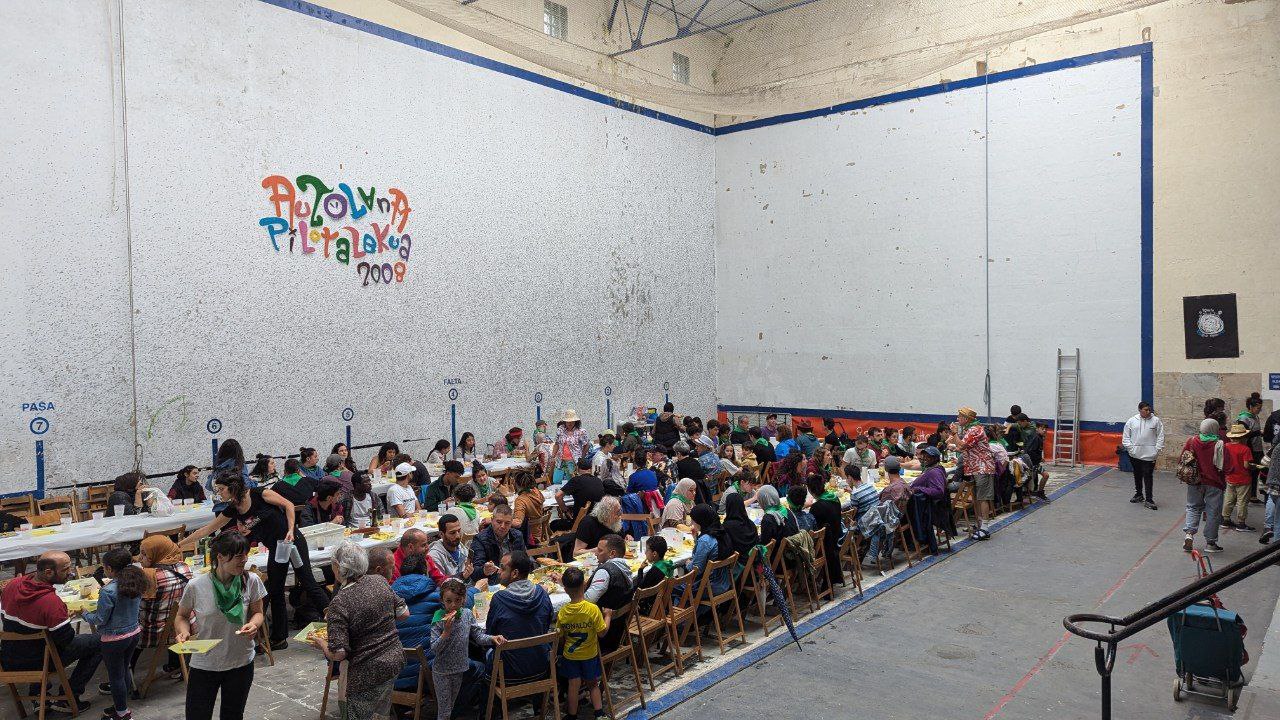"I'm sure the judge will agree with Kukutza."
- Iñaki Carro (Sestao, 1971) is one of the first supplies in Basauri prison after his death in 1976. He has spent many years at the Sestao Assembly of the Unemployed and has also participated in the anti-poverty group Argilan. He is currently immersed in the Okupación Office in Bilbao. He's a lawyer for Kukutza.

The main argument for emptying and bringing down Kukutza has been that it “has been ordered by the judge.” Are these things so white and so black legal?
What has a judge ordered? Yes, but we have made an appeal and it is very possible that the Provincial Court will agree. The legal argument is very simple: The occupation of Kukutza was denounced 12 years ago and archived. If the company wanted to reopen the case, it would have to go to another court. But they have used the criminal route, even though civil legal defence is more difficult for us, that is where the issue lies.
Why?
They cheat on the basis of criminal law: they request eviction as an interim measure and, once emptied, the case is filed. That is a fraud of the law, a law that is used for other purposes to recover the building.
What solution was there so as not to squander? Was it a matter of political will?
There is always a way. Private property is sacred, but if a highway passes through your land, they put public benefit above your property. What could be done about Kukutza? It seems quite legal. It could be said that “we need that land for the social and cultural obligations of the neighborhood”, it would be legal. But in the trial prior to the dismantling it was clear that, from behind, there was the City Council of Bilbao and not the company.
What did you see in the trial?
The most important defense of the demolition was the municipal attorney, who was only joined by the company’s attorney Cavisa. The lawyer of the City of Bilbao strongly criticized Kukutza and denounced the illegality of the project.
They have denounced irregularities throughout the process. Which one would I highlight?
The court issued a dismantling order prior to the defendants ' declaration, which is illegal, according to the same source. An owner may denounce the entry of some occupants into his house, but they are not okupas, but tenants. That is why the judge must listen to all the parties. On the other hand, Cavisa had its construction license exhausted. The building was acquired in 1994, and with whom it knows which trapicheras, the City Hall managed to make the land urbanizable. But the City Hall allows you to build on one condition: build. If you wait for the price of land to rise... That is what speculators do.
The concept of property is questioned. For many, if an owner has a building abandoned for long years, the legitimate owners are the ones who have taken care of it. But how can this legitimacy be legally defended?
In the legal system there is a picture: the usufruct. It refers to the need for a certain period to elapse for the acquisition of property in a building. It exists but it does not apply. Normally half of the cases of occupation are archived or acquitted, because the Constitution clearly states that property must be protected when it has a social function and that public authorities must avoid speculation.
They have thrown Kukutza, but are you still fighting for him?
We have lodged an appeal and within one and a half months it should be resolved. I am convinced that they will give us reason. And socially, some things have also become clear. Kukutza was not just any gaztetxe, it was very large and had a close relationship with the Rekalde neighborhood. On the other side, we have speculators convicted of urban corruption.
Iñaki Azkuna said Bildu was behind Kukutza, Rodolfo Ares spoke of “nostalgic of the borroka kale,” that the antisystem was the people...
We all knew that Kukutza had great support. Some gaztetxes have become gethes, but Kukutza’s intention has always been that they are open. The ability of Azkuna's message to still influence people is surprising. Here they say that the Abertzale left is behind, and in Murcia they will say that it is al Qaeda... You have to demonize it, but eventually the demons change.
Ares used the word “urban guerrilla”. Terrible. I was there and it is clear to me that on the first day, on Wednesday, the Ertzaintza had an order not to create incidents; there was nothing more to do with the head of the Ertzaintza behind his boys, with the nerves in the hand, ordering that the line be kept. But some Ertzaines started punching people. The fact is that the next day, Rodolfo Ares gave orders against labor reform. We all have the image of the containers burning in the street, but that happened 60 hours after eviction. That picture was needed by Ares, because if we stayed with the image on Wednesday ... What I find most worrying, however, is that we do not have a police officer prepared for certain circumstances.
Social cuts, high unemployment among young people, shortages... Do they have anything to do with the response to Kukutza?
It is clear that yes. States and politicians are constantly losing legitimacy; they are demonstrating that they do not govern, but the banks and the World Monetary Fund. I am amazed that people are still taking part in the elections. Crises usually promote unsupportive positions, but when a government loses legitimacy...
And in the occupation movement in general, is this context noticeable?
It is noted that the political situation in Euskal Herria is on the road to normalization; young people are once again concerned about social movements. Many people feel the need to move and the younger can be a natural path. On the other hand, it will be a coincidence, but now there will be many groups that have gone through the Okupation Office in recent years.A
few years ago that the Okupación Office in Bilbao was launched, why?
There may be a lot of reasons to occupy. Some of them do it for a cliche account; we drive the occupation because it's a way of pushing. We would like to get the one from Barcelona: if someone has their empty house there, think “they will occupy me”, perceive the pressure. In Bilbao there are 16,000 empty homes, kidnapped, if half of them go to rent... Here are four or six layoffs a day. You've lost the job because of them (banks, real estate agencies...) and you can't deal with the mortgage, they also take you out of the house... What are you going to do? Well, occupy! Banks must be pressured so that it is not known how many homes have empty BBK. Most of the people we're in the Okupation Office have come from anti-poverty groups because we've made an easy reflection. Housing has become enormously expensive and that feeds on most of our wages. It's a robbery. Working all your life to pay the bank... It's a sad thing.
You also bring the gaztetxes cases into the office, are there different casuistics?
There's everything. The previous time, in a talk from Erandio, we were able to get to know two experiences. One, Sopela's. A year ago the gaztetxe was there and they have come to an agreement with the owner to stay for at least three more years. The other is Plentzia's. In this case we tried time and time again to reach an agreement, but it was not possible and in the end they were evicted; to me the fax reached me four days after the eviction. Typically, when a gaztetxe has problems, he goes through the office: Seven Cats of Santutxu, Portugalete, Barakaldo, Bakio... In Santurtzi there are two, one of them is the house of culture of the Mamariga neighborhood, and people do not know that it is occupied; further away than Kukutza when it comes to boosting the participation of the neighborhood.
Why, beyond property and economic interests, do occupation and self-management generate some impotence in some sectors? Is it a matter of culture?
There's usually a respectful trend. I'm a musician and I like music, I don't identify with the Bilbain Association of Friends of the Opera, but there it is. Azkuna is a rather populist politician – I do not like that word, but good – and he has taken drastic measures. He doesn't go through Kukutza, well, but I'm not going to see the opera either, and we all live here. Many residents of Rekalde used to say by Kukutza: “They don’t bother me.” We can respect each other.
























